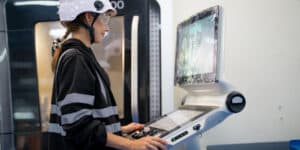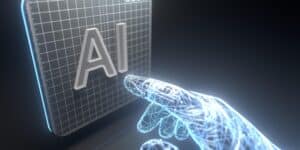Jobs threatened by artificial intelligence: discover the shocking impact on our society!
Impact of artificial intelligence on our society
The impact of artificial intelligence (AI) on our society arouses both passion and concern. Recent technological advances and the numerous applications of AI raise major questions regarding our way of life, employment and the role of humans in this new era.
Automation, employment and AI
Courbevoie-based Onclusive recently announced plans to replace 217 of its employees with artificial intelligence by June 2024. The move will result in the closure of three services and shows that AI-related job cuts are very real.
Which professions are threatened?
The professions likely to be affected by automation are not limited to low-skilled or manual positions. More specialized professions, such as those in the banking sector, consultancy, communications or even health, could also be impacted. According to Goldman Sachs, up to 300 million workers could be threatened by AI in the coming years.
However, cautious optimism is in order
Although the disruption caused by AI is undeniable, it is worth remembering that technological innovations have always brought new opportunities. Thousands of jobs could be created in research, development, marketing and machine maintenance, among others.
The place of humans in the face of AI
The advent of AI also raises questions about our place as individuals in this new reality.
- Ethics and regulation: It is essential to establish a framework to ensure the ethical and responsible use of AI. Governments must define standards and regulations to avoid abuses and respect the fundamental rights of individuals.
- Privacy and personal data: The generalization of AI leads to an increase in sensors and connected objects that collect our personal information. It is crucial to put in place protection and control mechanisms over the use of this data.
- Human relations : Increasing interaction with digital agents could change the way we communicate and cooperate within society. It will be important to preserve our humanity and our social values in the face of the omnipresence of AI.
Education and training for AI challenges
To take advantage of advances in AI while limiting its negative consequences, a focus on training and education is essential. Skills in digital literacy, data analysis and programming will be increasingly important.
Adaptation of school programs
School programs must adapt to integrate these new skills from an early age. It is essential to make students aware of the potential and risks linked to AI, but also to give them the tools necessary to understand and master this new technological environment.
Continuing training and professional retraining
Training should not end with obtaining a diploma. A culture of lifelong learning will be essential so that everyone can adapt to changes in the job market and the new challenges posed by AI.
In conclusion, artificial intelligence will transform our society in a profound and lasting way. It is essential to prepare for this by adopting a responsible and ethical approach to its use, as well as investing in lifelong education and training.









